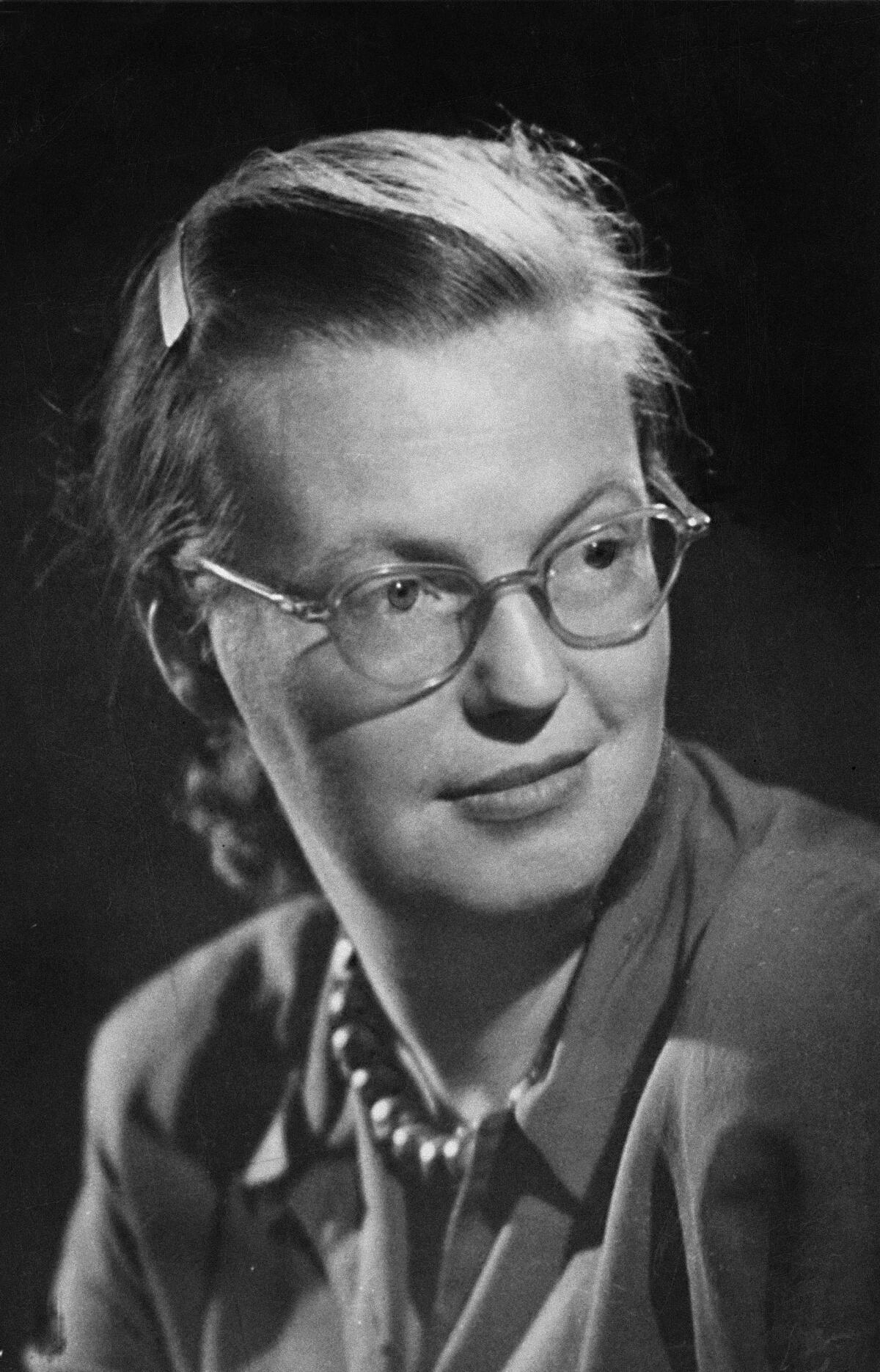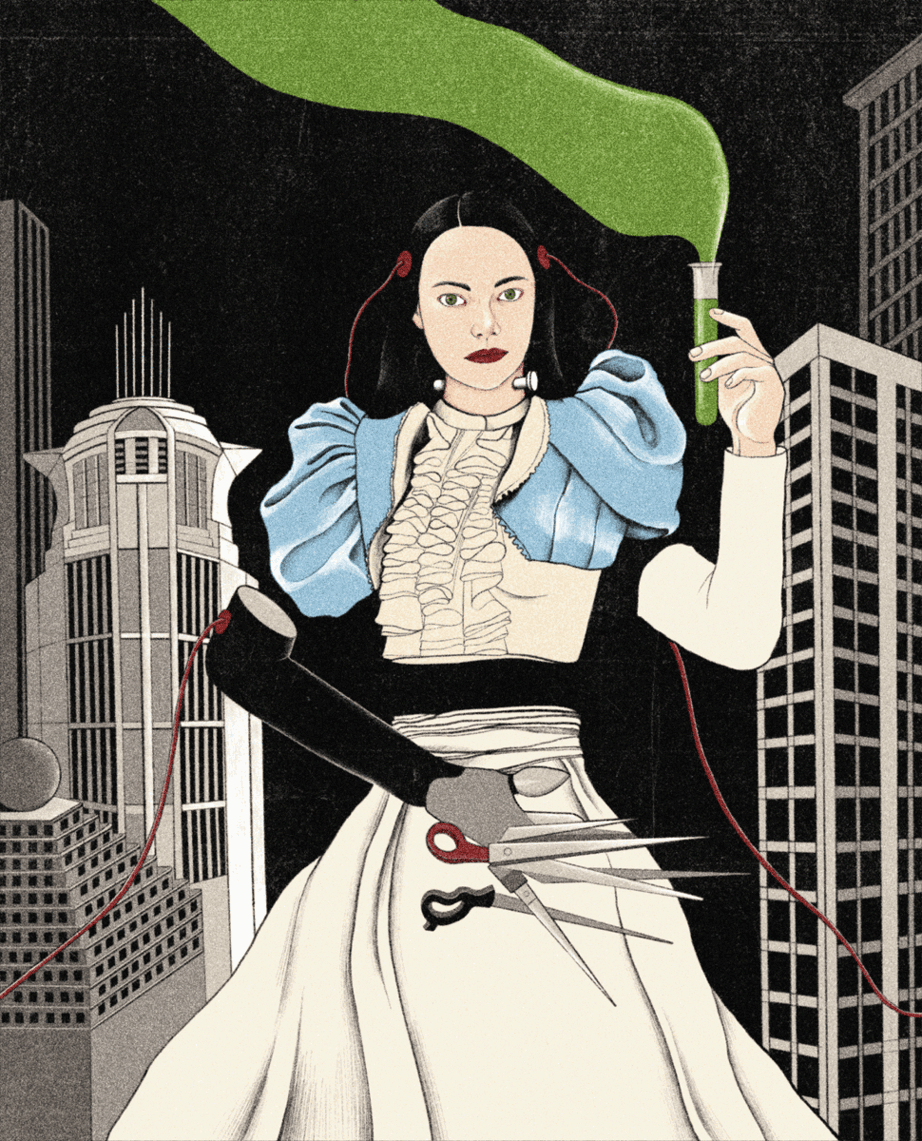What ‘Shirley’ gets very wrong about Shirley Jackson
Josephine Decker’s newest film has an irresistible premise of seduction and betrayal in mid-20th century New England. A newly married couple, the wife (Odessa Young) pregnant with their first child, arrive in an idyllic small town, where the husband (Logan Lerman) is set to take an assistant’s job at the local college. They move into the home of his boss, a vaunted literary critic and professor (Michael Stuhlbarg), married to a writer (Elisabeth Moss) whose stories have thrilled, horrified and angered readers.
Tension crackles with each beautifully shot, dreamlike scene. The elder couple spar over her depression and his philandering and controlling behavior. The two wives conduct a dance of sublimated sexual tension that never quite achieves consummation. The feeling of suffused dread pays off elegantly. Decker, who won accolades for her previous film, “Madeline’s Madeline,” seems to have pulled off another triumph. Certainly the critics think so, lauding Moss in particular for an Oscar-worthy turn.

Yet I was unmoved, because “Shirley” has a rotten core. It is supposed to be a fictionalized account of Shirley Jackson, best known for the New Yorker short story “The Lottery” and novels including “The Haunting of Hill House” and “We Have Always Lived in the Castle.” What ought to have been a terrific, surreal exploration of the dangers of domesticity for women before the advent of second-wave feminism clangs atonally for anyone who knows even a little about Jackson’s life and work — and their profound divergence from Moss’ performance or Decker’s story.
I watched “Shirley” with much trepidation. I had not cared for its source material, Susan Scarf Merrell’s 2014 novel “Shirley” (adapted for the screen by Sarah Gubbins). I’m also a longtime devotee of Jackson’s work, and reprinted her story “Louisa, Please Come Home” in my domestic suspense anthology, “Troubled Daughters, Twisted Wives.” In spite of my concerns, I did admire the cinematography and Decker’s direction and thought well of the performers, particularly Stuhlbarg and Young. Ultimately, my trepidation was warranted.
The film fails first because of the novel. Merrell professed to admire Jackson’s work a great deal, and the premise of her book had potential: an examination of what it meant for Jackson to stand beside a Great Man — the critic and Bennington professor Stanley Edgar Hyman — while knowing, or at least suspecting, she might be a Greater Woman, was rich in creative possibility.
Instead, the novel, and by extension the film, paint Jackson as a two-dimensional harridan. The agoraphobia and depression that left her housebound in the wake of “Castle’s” publication are all there. But the recovery and commitment to new writing, cut short by her death in 1965 at age 48, are glaringly absent. The depiction of Jackson as someone inhabiting her darkness at every turn is creative license. But indulging it so heavily omits the sense of fun and bonhomie disclosed by her children and others in Ruth Franklin’s essential 2016 biography, “Shirley Jackson: A Rather Haunted Life.”
That omission ties into another in the film version: Jackson and Hyman’s four children. Merrell’s novel includes them, even putting dialogue in the mouths of the two eldest, who remain very much alive. Legal wrangling is the likeliest explanation for their absence in the movie. This choice, sadly, further undercuts the fictional depiction of Jackson as psychologically trapped in her marriage. It carves out a large piece of not only her life but her livelihood: Jackson’s many published essays on domesticity and motherhood, collected in the delightful volumes “Life Among the Savages” and “Raising Demons,” helped support her family more than the fiction did.
“Shirley” also exposes the larger problem of biopics in the age of easily accessible video and audio. Recordings of Jackson reading from “The Lottery” are available on YouTube. Telling the story, Jackson leaned on subtle notes to ratchet up the dread. The contrast between her rich, sonorous, California-inflected mid-century voice and Moss’ interpretation is all the more jarring. With the ersatz material she has to work with, Moss opts instead for atonality and wild flashes that leave little room for psychological nuance. Since Decker and Moss had the same access to Jackson’s life and voice that I did, I can only infer their choice was deliberate.
The bar for biopics, in film and television, has to be set high to overcome the viewer’s familiarity. The works must, in essence, convince people that imaginative interpretation is closer to the truth than was real life. When that alchemy succeeds, it produces stunning films along the lines of “Fruitvale Station” and “Just Mercy,” or television miniseries like “When They See Us” and “Mrs. America,” which illuminate and educate while striving for artistic excellence. When such efforts fall short, the valley grows ever more uncanny, and the result is tantamount to creative gaslighting.
One of “Shirley’s” most egregious sins contains, paradoxically, the seeds of a solution. Both Merrell’s book and Decker’s film hinge on the fictional Jackson’s apparent obsession with the still-unsolved 1946 disappearance of Paula Jean Welden, a 20-year-old Bennington student, and its apparent inspiration for her second novel, “Hangsaman,” published five years after Welden vanished. But Jackson’s biographer, Franklin, found no evidence of a connection, and a close read of “Hangsaman” reveals an altogether different inspiration.
That novel is an outstanding portrait of a young woman on the margins. Natalie Waite is lonely, introverted, almost invisible. A disturbing encounter, vague enough to verge on sexual assault, propels her even further inward. “Hangsaman” is a novel of the inner life — how it can bend back upon itself, how quiet dread can be a worse calamity than overt melodrama. Jackson understood well that isolation was a scourge, and that the yearning to belong, coupled with an inability to do so, was a recipe for dangerous turmoil.
What wonders Josephine Decker might have done with an adaptation of “Hangsaman.” Or even with the synopsis of “Shirley” as set out in my opening paragraph. Instead, we’re stuck with a film that is hidebound to the constraints of the biopic, however much it struggles to shake them loose. The upside is that those of us disappointed in the film always have Jackson’s marvelous writing to turn to, including “Hangasman.” Why not start there?
Weinman is the author of “The Real Lolita” and the editor of the forthcoming anthology “Unspeakable Acts: True Tales of Crime, Murder, Deceit & Obsession.”
More to Read
Sign up for our Book Club newsletter
Get the latest news, events and more from the Los Angeles Times Book Club, and help us get L.A. reading and talking.
You may occasionally receive promotional content from the Los Angeles Times.






